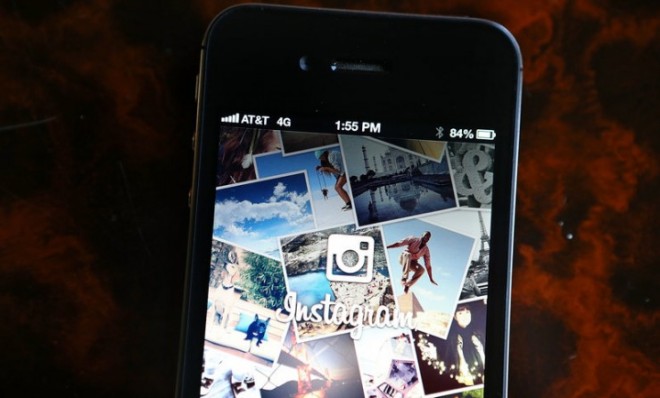Instagram reportedly loses 25 percent of users: What's going on?
The New York Post alarmingly reports that users left the photo service en masse on Christmas, but that's not the whole story

A free daily email with the biggest news stories of the day – and the best features from TheWeek.com
You are now subscribed
Your newsletter sign-up was successful
Instagram, the popular photo-sharing application for phones, may be closing the year on a low note. After seeing explosive growth for much of 2012 and peaking at 16.4 million users, the New York Post reports that Instagram's daily active users have fallen to 12.4 million, according to AppData, which tracks usage rates of Facebook applications like FarmVille. "[We are] pretty sure the decline in Instagram users was due to the terms of service announcement" on Dec. 17, AppData told The Post. In the policy switch, Instagram, which Facebook bought earlier this year, claimed the right to sell user-generated photos to advertisers, but quickly reverted back to its old wording after users far and wide — including the likes of Justin Bieber and Kim Kardashian — freaked out and threatened to leave the service. "It is not our intention to sell your photos," co-founder Kevin Systrom told users in a blog post. Is Instagram really bleeding users?
"The Post is flat-out wrong," says Zachary M. Seward at Quartz. AppData only looks at Instagram accounts connected to Facebook, which is a partial subset of its overall user base. "Instagram released its new terms of use on Dec. 17, igniting controversy almost immediately, but AppData doesn't show any significant decline in usage until Christmas." That doesn't make sense.
None of which is meant to apologize for Facebook and Instagram, which was forced to retreat from the new terms after objections to its most ambitious claims, like the ability to sell users' photos without compensation... Still, the idea that Instagram users are fleeing the service en masse doesn't hold up to a gut check.
While the numbers might not mean much, the trend is still interesting, says Jay Yarow at Business Insider. The drop on Christmas day is strange, sure. But personally, "I was using Instagram more around Christmas, and so were my friends."
The Week
Escape your echo chamber. Get the facts behind the news, plus analysis from multiple perspectives.

Sign up for The Week's Free Newsletters
From our morning news briefing to a weekly Good News Newsletter, get the best of The Week delivered directly to your inbox.
From our morning news briefing to a weekly Good News Newsletter, get the best of The Week delivered directly to your inbox.
In any case, the language set out before users when they sign up for a new service is still an impenetrable garble of legalese. Small wonder most people glaze over the details, law professor Eric Goldman tells The New York Times. "The lay audience usually misreads these complicated and nuanced contract provisions, resulting in histrionics ("they 'own' me!") or platitudes ("it says right there in the TOS that users own their own data"), neither of which is quite right."
And this is bad news for users going forward, says Nilay Patel at The Verge. Start-ups often use this kind of dense, formal language to allow for abrupt strategy shifts later (Instagram converted from a location app to a photo app early on). By changing its TOS language to something more modern and understandable, all Instagram really did was invite unwanted criticism. "The Instagram debacle is destined to be discussed in boardrooms and business schools for years to come as an object lesson in keeping terms of service vague and hard to understand." That means instead of easy-to-understand usage terms that we all dream of, we'll instead get more of the same.
A free daily email with the biggest news stories of the day – and the best features from TheWeek.com
-
 The Olympic timekeepers keeping the Games on track
The Olympic timekeepers keeping the Games on trackUnder the Radar Swiss watchmaking giant Omega has been at the finish line of every Olympic Games for nearly 100 years
-
 Will increasing tensions with Iran boil over into war?
Will increasing tensions with Iran boil over into war?Today’s Big Question President Donald Trump has recently been threatening the country
-
 Corruption: The spy sheikh and the president
Corruption: The spy sheikh and the presidentFeature Trump is at the center of another scandal